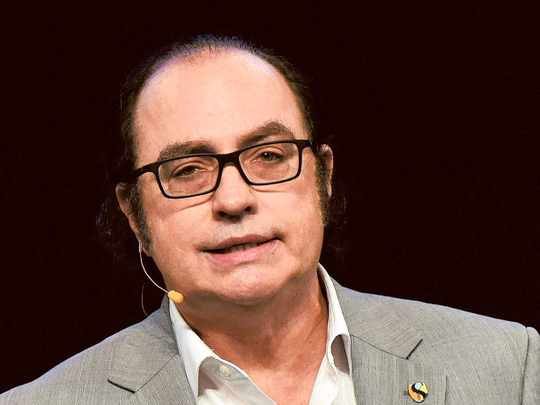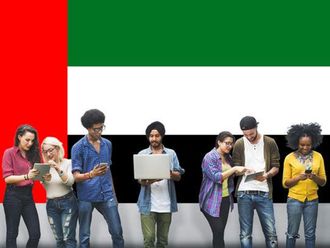
Dubai: Artificial intelligence is a vision of broad, deep and subtle superhuman intelligence that has not happened yet, said Dr Neil Jacobstein, co-chair of the artificial intelligence and robotics track at Singularity University, on the third day of the World Government Forum.
With potential to alter the face of transport, health care, education, and the future on the whole, technologies such as artificial intelligence and robotics should be responsibly used, and that requires “education, leadership, and active citizenship”, explained Jacobstein.
“The question is not if robots could rule, it’s whether they should or shouldn’t,” he said.
Responsible use of technology also considers core human values and long-term systematic consequences, added Jacobstein.
Since 2013, over $3 billion (Dh11.02 billion) was invested by venture capital in artificial intelligence companies.
Jacobstein pointed out that artificial intelligence amplifies human skills, improves prediction accuracy and accelerates process timing. He referred to robotics as “artificial intelligence but with wheels and sensors”.
Looking at school systems, he said artificial Intelligence is “going to blow the roof off education”, and allow us to improve our decision making. “Artificial Intelligence systems can solve SAT [Scholastic Aptitude Test] geometry questions as well as average human tests,” he said.
Jacobstein also referred to changes that can transform transportation, pointing out that currently 1.2 million people are killed on roads annually around the world, which could be avoided through the use of artificial intelligence.
Governments can also benefit by using such technologies to solve complex problems quickly and improve product and service quality. “Artificial intelligence will also change the balance of power between small and large countries,” he added.
Touching on its impact on work opportunities, Jacobstein pointed out that routine jobs are more susceptible to becoming automated than creative jobs.
“We are responsible for our inventions,” he concluded.











